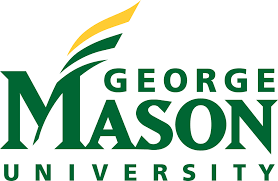George Mason University: Community approach to reducing single-use plastic beverage bottles wins EPA award
In February 2021, a survey of two high schools in Woodbridge, Virginia, showed that a surprising number of students used three or more plastic beverage bottles a day, mostly bottles of water.
This information shocked Freedom High School seniors Stephanie Ruiz Molina and Ashley Munoz-Trujillo. They realized that their school could be disposing of almost 10,000 bottles a week, and they wanted to do something to help reduce that number.
Their work as a part of the collaborative community project, A Community Approach to Reducing Single-Use Plastic Beverage Bottles, earned them the prestigious President’s Environmental Youth Award from the U.S. Environmental Protection Agency.
This two-year pilot project was funded by the National Oceanic and Atmospheric Administration’s Marine Debris Program and led by George Mason University researchers Cindy Smith, Scott Glaberman, T. Reid Nelson and Kim de Mutsert, all members of the Potomac Environmental Research and Education Center (PEREC) at Mason’s Potomac Science Center in Woodbridge.
“What blew us away was the data the students collected,” said Smith, who served as the project’s principal investigator. “If students in each of the 13 Prince William County high schools toss out 10,000 single use bottles a week, that’s almost 4.7 million single-use bottles disposed of during the school year, just for these high schools.”
Smith said the project’s goal was to raise awareness of and connect participants to the ecological impacts of debris, expand participation in clean-up efforts, and change disposable water bottle use behavior at two high schools.
“In addition to changing behavior, we hoped that students would see the connection of how disposable bottles, which may fall out of cars in school parking lots and blow out of trash cans at athletic fields, frequently end up in storm drains and then wash into our local streams and waterways where they may impact aquatic organisms,” she said.
The project targeted 20 teachers and 35 high school student delegates, whose efforts could impact the behavior of thousands of students at Freedom High School (2,159 students), located near Neabsco Creek, one of the county’s most trash-laden waterbodies, and Patriot High School (2,678 students), in the Broad Run watershed.
Community partners working with the students and Mason included Keep Prince William Beautiful, Prince William County Public Works Watershed Division, Prince William Soil and Water Conservation District, Northern Virginia Regional Commission, and both high schools.
Mason Environmental Science and Policy students also had the opportunity to get involved, including those in de Mutsert’s and Smith’s labs and Glaberman’s Environmental Toxicology class.
Ruiz Molina and Munoz-Trujillo were a part of the delegate crew at Freedom High that successfully petitioned the school to install water bottle stations for students, collected more than 300 student action pledges, partnered with local organizations to provide one donated reusable bottle to each student who pledged, and created a social media campaign to reach their peers.

